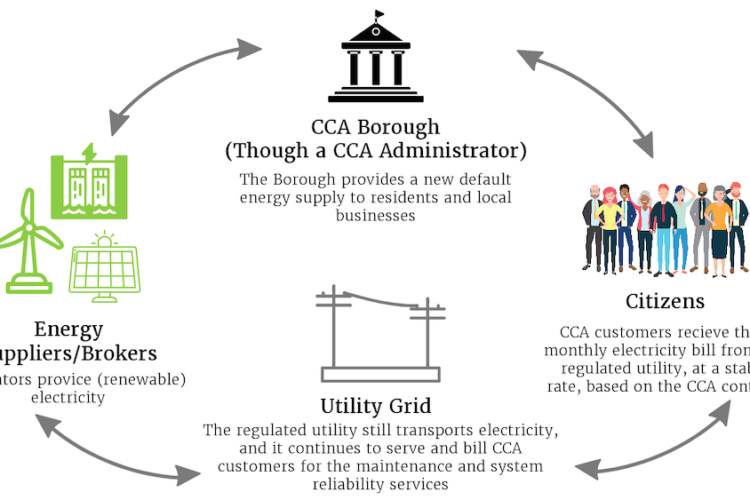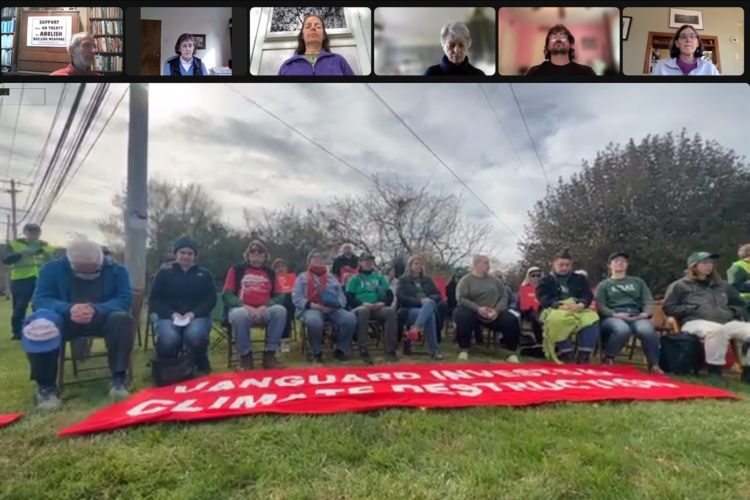Endless War, Endless Environmental Harm

By Emily Wirzba and Alicia Cannon.
THE QUAKER VALUE OF PEACE calls us to advocate for a reduction in Pentagon spending and military interventions abroad. The value of stewardship urges us to address climate change and seek an earth restored. While it might seem surprising, these two issues are intrinsically linked.
The military, concerned about impacts on current and future operations, has begun actively preparing their own solutions to address the climate crisis. A recent report titled “Implications of Climate Change for the U.S. Army,” commissioned by General Mark Milley, chair of the Joint Chiefs of Staff, recognizes that the Department of Defense must establish “a culture of environmental stewardship across the force.” However, the troubling recommendations for doing so include the need for new foreign interventions and massive permanent domestic military infrastructure to prevent the power grid from collapsing.
The Pentagon cannot be the sole place where climate “solutions” are housed. This would perpetuate a ballooning Pentagon budget and military intervention around the world.
A militaristic lens to climate solutions is not the answer. If we want to sincerely address the climate crisis, solutions must be based in humanitarianism and diplomacy, not a larger military footprint.
Here are a few ways in which environmental harm and endless war are related:
Climate Change Can Exacerbate Conflict and Instability
Climate-exacerbated events, like drought and sea-level-rise, can spark violence, instability, and contribute to climate displacement and forced migration. They create the potential for conflict and increased military activity abroad, perpetuating a cycle of endless war.
For example, in the years leading up to Syria’s civil war in 2011, the Middle East experienced a devastating drought. More than 1.3 million Syrians were affected, and in some areas up to 85 percent of the country’s livestock were killed. People across the Middle East were forced to migrate to cities, contributing to an already unstable situation.
The Military’s Contribution to Climate Change
As the world’s single biggest institutional consumer of fossil fuels, the military contributes significantly to climate change. Endless wars have led the military to consume an incredible amount of energy and emit staggering levels of greenhouse gases into earth’s atmosphere.
Before 9/11, the military’s energy consumption was steadily declining. Now, the Department of Defense consumes between 77 to 80 percent of all government energy and emits more greenhouse gasses than two-thirds of the countries on earth. Continued intervention in conflict abroad will further exacerbate our reliance on fossil fuels and worsen the climate crisis.
Physical Violence to the Planet
Military conflict destroys ecosystems, damages water sources, and harms human health. Military bases leach chemicals and toxins that pollute water supplies and cause severe health issues.
Following the invasion of Iraq in 2003, environmental toxins from depleted uranium left children living near American bases with an increased risk of ailments such as congenital heart disease, spinal deformities, and cancer. More than 180,000 U.S. veterans have documented health concerns due to exposure to toxic materials that the military burned in open-air pits.
A Better Way Forward
In order to seek a reduction in Pentagon spending and militarization, we must seek an Earth restored. If we aren’t proactive, climate-exacerbated events could lead to more conflict, more troop deployment, more displacement, and more military action.
As advocates, we must take a wholistic view of the world and encourage Congress to uphold the common good. We need to prioritize diplomacy rather than an expanded military presence and unabated use of fossil fuels.


